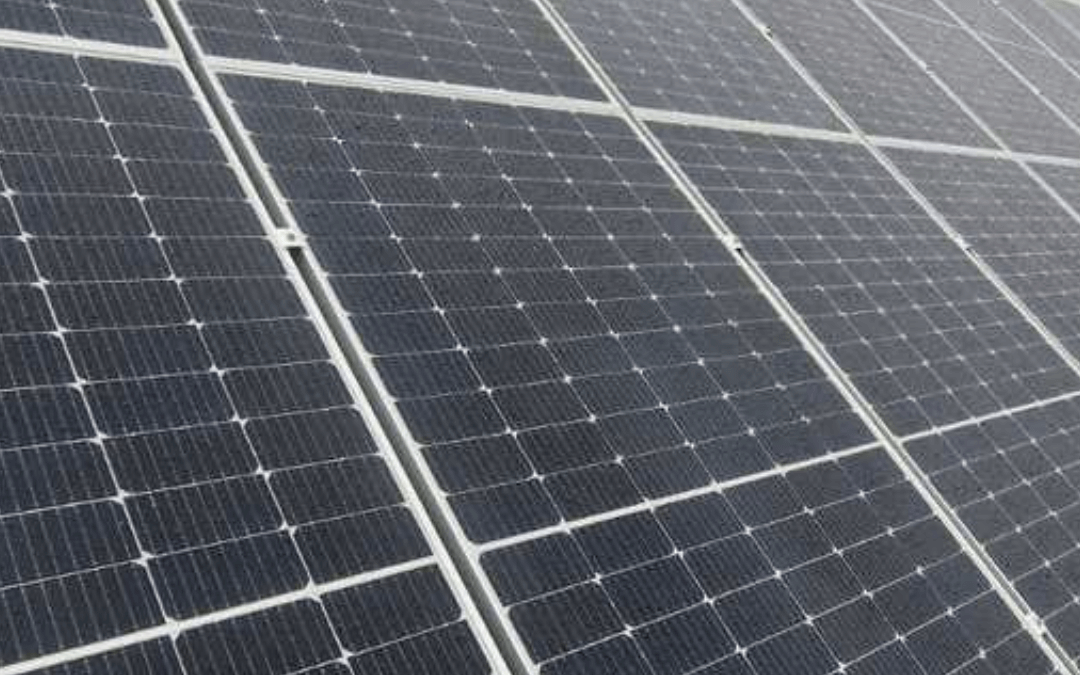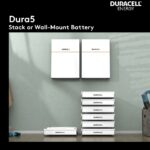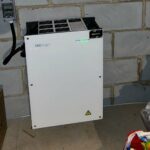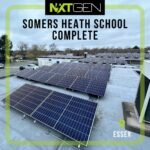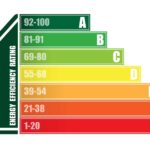Updated: 8 January 2024
If you’re interested in solar energy, you may have come across some terms that you are unfamiliar with or that may seem confusing. Solar energy is a vast and diverse field that encompasses many technologies, applications, and benefits.
To help you navigate the world of solar energy, we have compiled a short list of some common solar energy terminology that you should know.
Whether you are looking to install solar panels on your roof, join a community solar project, or learn more about how solar works, this glossary will help you understand the basics of solar energy.
Alternating Current (AC)
- An electric current which periodically reverses direction and changes its magnitude continuously with time, in contrast to direct current (DC), which flows only in one direction. Alternating current is the form in which electric power is delivered to businesses and residences, and it is the form of electrical energy that consumers typically use when they plug kitchen appliances, televisions, fans and electric lamps into a wall socket.
Array
- A collection of solar panels that are wired together to form a solar PV system.
Azimuth
- The direction that your roof faces (in the context of solar energy). The azimuth is measured in degrees, representing the angle between your roof and true north.
BESS
- BESS is a Battery Energy Storage System that can be used to store excess energy from renewable sources.
Direct Current (DC)
- A one-directional flow of electric charge. An electrochemical cell is a prime example of DC power. Direct current may flow through a conductor such as a wire, but can also flow through semiconductors, insulators, or even through a vacuum as in electron or ion beams.
Degradation
- The decline in output that solar panels experience over time due to various factors.
Efficiency
- The percentage of sunlight captured by solar panels and converted into electricity, normally between 15% – 22%.
Energy Efficiency Rating
- A rating that tells you how energy efficient a property is, from A (very efficient) to G (very inefficient). Most of the UK’s housing stock falls somewhere in between the two – with the average energy efficiency rating of homes in the UK sitting in band D.
Energy Performance Certificate (EPC)
- A certificate which gives a property a rating from A-G based on its energy efficiency. In order to qualify for the old Feed-in Tariff (FiT) payments you must have an EPC for your property, with a minimum energy efficiency rating of D.
Feed-in Tariff (FiT)
- An old scheme set up by the UK government to pay the owner of the system a Generation Tariff for solar electricity produced and an Export Tariff for excess solar electricity which is sold to the National Grid. The scheme closed to new applications on 31st March 2019. Read more: Solar Panel Grants UK 2023/2024.
Hybrid Inverter
- A hybrid inverter, otherwise known as a hybrid grid-tied inverter or a battery-based inverter, combines two separate components–a solar inverter and a battery inverter–into a single piece of equipment. An inverter is a critical component of any solar energy system.
Home Upgrade Grant (HUG2)
- A new scheme set up by the UK government which is a government-funded grant that provides energy efficiency upgrades and low carbon heating to low-income households living in the worst quality, off-gas grid homes in England. Solar Panel Grants UK 2023/2024.
Grid
- The ‘Grid’ or the ‘National Grid’ to give it its full name is the high-voltage electric power transmission network serving Great Britain, connecting power stations and major substations, and ensuring that electricity generated anywhere on the grid can be used to satisfy demand elsewhere.
Inverter
- An inverter is a device that converts direct current (DC) electricity from solar panels or batteries into alternating current (AC) electricity for use by your appliances or for the National Grid connection.
Kilowatt (kW)
- A unit of power, equal to 1,000 watts.
Kilowatt-hour (kWh)
- A unit of energy, equal to the amount of power consumed or produced in one hour.
Microgeneration Certification Scheme (MCS)
- A quality assurance scheme which certifies solar technologies and installers. A MCS certified installer must be used for the installation of a solar PV system if you wish to receive the Smart Export Guarantee (SEG) payments. Here at NXTGEN Energy we are proud to be both MCS Certified Solar PV Installers and MCS Certified Battery Storage Installers.
Monocrystalline Solar Panel
- A Monocrystalline panel is a type of solar panel made of single crystal silicon. The solar cells or “wafers” used in monocrystalline panels are made from a single silicon crystal that is formed into a cylindrical silicon ingot. Monocrystalline panels are black in colour.
National Grid
- The high-voltage electric power transmission network serving Great Britain, connecting power stations and major substations, and ensuring that electricity generated anywhere on the grid can be used to satisfy demand elsewhere.
Photovoltaic
- The term stands for the production of electric current at the junction of two substances exposed to light. For example, photovoltaic cells that are used in solar panels are devices that convert sunlight into electricity.
Polycrystalline Solar Panel
- Polycrystalline solar panels, also known as multi-crystalline or mc solar panels, are the most common type of solar panel on the market. They consist of several crystals of silicon in a single PV cell. The panels can be made with a variety of materials including silicon, copper indium gallium (CIGS), and amorphous silicon. Polycrystalline panels are made of silicon solar cells, but the cooling process is different from monocrystalline panels, which causes multiple crystals to form, as opposed to one. The leftover materials can be reused, so there’s no waste.
Renewable Heat Incentive (RHI) Scheme
- A government scheme which awards payments if you install or have already installed renewable heating systems (under certain specifications). Solar Panel Grants UK 2023/2024.
Single Phase
- In electrical engineering, single-phase electric power (abbreviated 1φ) is the distribution of alternating current(= (AC) electric power using a system in which all the voltages of the supply vary in unison. Everything in a residential home only operates off of single-phase power such as outlets, light, refrigerator and even the appliances using 240 volts of electricity.
Smart Export Guarantee (SEG) Scheme
- The Smart Export Guarantee (SEG) pays customers for renewable electricity they have generated and put into the National Grid. It replaced the Feed-in Tariff (FiT) scheme in 2020. The FiT scheme also pays many solar panel owners for the electricity they generate at home. Read more: Solar Panel Grants UK 2023/2024.
Solar Array
- A collection of solar panels that are wired together to form a solar PV system.
Solar Battery
- Solar batteries are devices that allow you to capture and store energy created by a solar PV system to be used at any time, for example at night when solar panels are not generating energy.
Solar Energy
- Radiant light and heat from the Sun that is harnessed using a range of technologies such as solar power to generate electricity, solar thermal energy (including solar water heating), and solar architecture.
Solar Panel
- Solar panels are devices that consist of a group of PV (photovoltaic) cells sealed in a protective layer to convert sunlight into electricity (Direct Current / DC).
Solar Power
- The conversion of the energy from the sun’s radiation into electrical energy using photovoltaic (PV) devices such as solar panels.
Solar PV
- A term PV (photovoltaic) that describes the process of converting sunlight into electricity using solar panels.
Solar PV System
- A solar photovoltaic (PV) system is composed of one or more solar panels combined with an inverter and other electrical and mechanical hardware that use solar energy from the Sun to generate electricity.
Solar Shingle
- Solar modules designed to look like and blend in with traditional roof shingles. They are also referred to as solar tiles or solar slates.
Solar Thermal
- A term that describes the process of using solar collectors to absorb solar radiation and transfer the heat into a medium like water or solar fluid for use.
Three Phase
- Three-phase electric power (abbreviated 3φ) is a common type of alternating current (AC) used in electricity generation, transmission, and distribution. It is a type of polyphase system employing three wires (or four including an optional neutral return wire) and is the most common method used by electrical grids worldwide to transfer power.
Watt
- The watt (symbol: W) is the unit of power or radiant flux in the International System of Units (SI), equal to 1 joule per second or 1 kg/m2 . It is used to quantify the rate of energy transfer.
Zenith
- The angle of the sun relative to the vertical plane, measured from the zenith (directly overhead).
If you’re interested in getting solar panels installed, you can contact us on 01268 928 690 or click on the ‘Enquire Now’ button below to get a free no-obligation quote and solar PV system design service from a trusted 5-Star Rated MCS Certified Solar Panel Installer who always puts our customers first.
Frequently Asked Questions about Solar Panels
The short answer is yes! Solar panels can cut almost 70% off your energy bills, and that proportion is growing as gas bills rise. No wonder solar panel installations have risen by over 45% in the last three years, and shot up by over 80% in the last year alone.
1-2 bedroom property, 8 solar panels generating about 1,800 kWh a year.
3 bedroom property, 12 solar panels generating about 2,800 kWh kWh a year.
4-5 bedroom property, 16 solar panels generating about 3,700 kWh kWh a year.
The answer depends on how much you pay for the solar panels, how much your electricity would otherwise cost, how much green energy the panels make from the sunshine you get, and whether you have solar batteries installed or not. The average payback period for solar PV systems is coming down and can now be under 10 years depending on your solar PV system and how many solar panels you have installed.
The solar industry standard for most solar panels’ lifespans is between 25 to 30 years, but with proper care and cleaning they can last much longer. Most reputable manufacturers offer production warranties for 25 years or more. The average break even point for solar panel energy savings occurs six to 10 years after installation.
Whilst there is no hard and fast rule as to how much value solar panels can add to the overall value of your property, suggestions range from 4.1% to 14% on average and they are certainly unlikely to detract from the value of your home, even if they aren’t the most attractive roof feature visually.
Latest Solar Energy Posts
- Why Leisure Centres Should Invest in Solar PanelsIn recent years, the concept of sustainability has become increasingly vital in various industries, including leisure centres. As the global focus shifts towards environmental conservation and renewable energy sources, leisure centres are recognizing the importance of investing in sustainable practices to reduce their operating costs and their carbon footprint. One such sustainable solution gaining traction… Read more: Why Leisure Centres Should Invest in Solar Panels
- Duracell Dura5: A Safe and Scalable Home Battery SolutionThe Duracell Dura5 Battery is shaking up the residential energy storage scene with its commitment to safety, performance, and adaptability. This Lithium Iron Phosphate (LiFePO4) battery system packs a punch with a 5.12kWh capacity (4.6kWh usable) and a reassuring 10-year warranty, ensuring long-lasting peace of mind for consumers. Safety First: The Power of LiFePO4 Chemistry… Read more: Duracell Dura5: A Safe and Scalable Home Battery Solution
- The Value Proposition of Battery Storage for Solar Panel SystemsIs your solar energy investment reaching its full potential? While solar panels gleaming on rooftops capture the sun’s rays, maximizing the utilization of that harnessed solar power is crucial for reaping the true rewards of clean energy. Solar battery storage holds the key, transforming your home or business into a self-sufficient energy hub. This post… Read more: The Value Proposition of Battery Storage for Solar Panel Systems
- School Funding – Solar for SchoolsSolar energy is revolutionizing the way educational institutions approach sustainability and energy consumption. As schools seek innovative solutions to reduce costs, educate students about renewable energy, and minimize their environmental impact, the adoption of solar power has emerged as a compelling choice. Solar For Schools, a leading initiative in the field, empowers educational institutions to… Read more: School Funding – Solar for Schools
- Homes with solar panels can sell for more than those withoutHarnessing the power of the sun to generate clean, renewable energy is not only a sustainable choice for homeowners but also a lucrative investment in the UK property market. Homes equipped with solar panels are increasingly commanding higher prices and attracting more buyers than their non-solar counterparts. In this blog post, we’ll delve into the… Read more: Homes with solar panels can sell for more than those without
- Solar Panels and EPC RatingsSolar panels have become increasingly popular as a sustainable energy solution, offering numerous benefits for both residential and commercial properties. In parallel, Energy Performance Certificate (EPC) ratings serve as indicators of a building’s energy efficiency. Understanding how solar panels can impact EPC ratings is crucial for maximizing energy savings and environmental benefits. This blog post… Read more: Solar Panels and EPC Ratings

